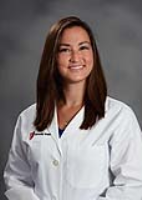The Best Ways to Stay Healthy in Your 30s
March 01, 2017
In your 30s, you may not be too worried about your health decades down the road. You’re more concerned with the here and now: getting your kids off to school or keeping up with a heavy workload.
A few health practices and precautions, however, will not only improve your life today but also in the years to come. Follow these five health tips from family medicine physician Natalie Thomas, DO, to make your 30s your best decade yet.

- Adopt an active lifestyle. If you’re not already physically active, now is a great time to start. By adopting healthy habits in your 30s, you position yourself to continue those habits for the rest of your life. Living a healthy lifestyle doesn’t mean you have to hit the gym hard every day. Small changes add up. For example, bike to the convenience store instead of driving. Or listen to a podcast and go for a walk instead of watching another rerun of your favorite show. In your 30s, you might be busy starting a family or building a career. Don’t let this keep you from being active. “Exercise reduces stress and helps you sleep well so you’ll be better prepared to handle the day’s challenges,” Dr. Thomas says.
- Get tested for sexually transmitted diseases (STDs). Anyone who has sex has the chance of getting an STD. But your risk increases if you’ve had multiple partners, or if you’ve had sex with someone who has had multiple partners. Your risk is also greater if you’ve had unprotected sex. If it’s been awhile since you’ve been tested for STDs, talk with your doctor. Some sexually active people may need to be regularly tested for common diseases, such as chlamydia.
- Have regular heart-health screenings. If you think you’re too young to have heart problems, it’s still a good idea to keep up with regular heart-health screenings. If a screening shows you might be headed for trouble, you can take steps now to prevent complications that could become harmful if left untreated. You may require early blood pressure and cholesterol screenings starting in your 20s at intervals based on your individual heart disease risk factors. “Talk with your doctor about your personal heart disease risk and what screenings you need, Dr. Thomas says.

- Partner with your doctor for a healthy pregnancy. If you’re considering having a baby, your 30s are an especially important time to think about reproductive health. A woman’s chances of becoming pregnant decrease every year after age 30. Male infertility also may be an issue. Some health problems, such as polycystic ovary syndrome (PCOS), can affect fertility in women. “Talk with your doctor if you’re thinking of becoming pregnant,” Dr. Thomas says. “He or she can identify any potential risks and take steps to ensure you are your healthiest self.”
- Stay safe on the road. Unintentional injuries, such as vehicle collisions, are the leading cause of death among people in their 30s. Avoid accidents by staying alert behind the wheel. Never text and drive, and save phone calls for when you’re not behind the wheel.
To make an appointment with Dr. Thomas or another University Hospitals primary care doctor, visit UHhospitals.org.


